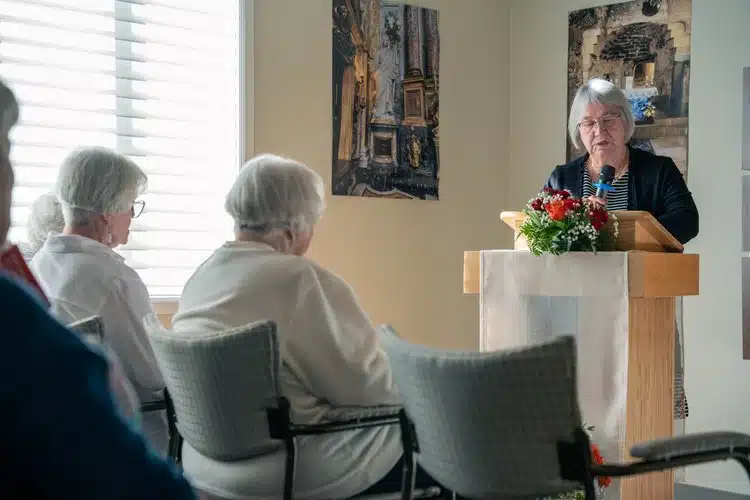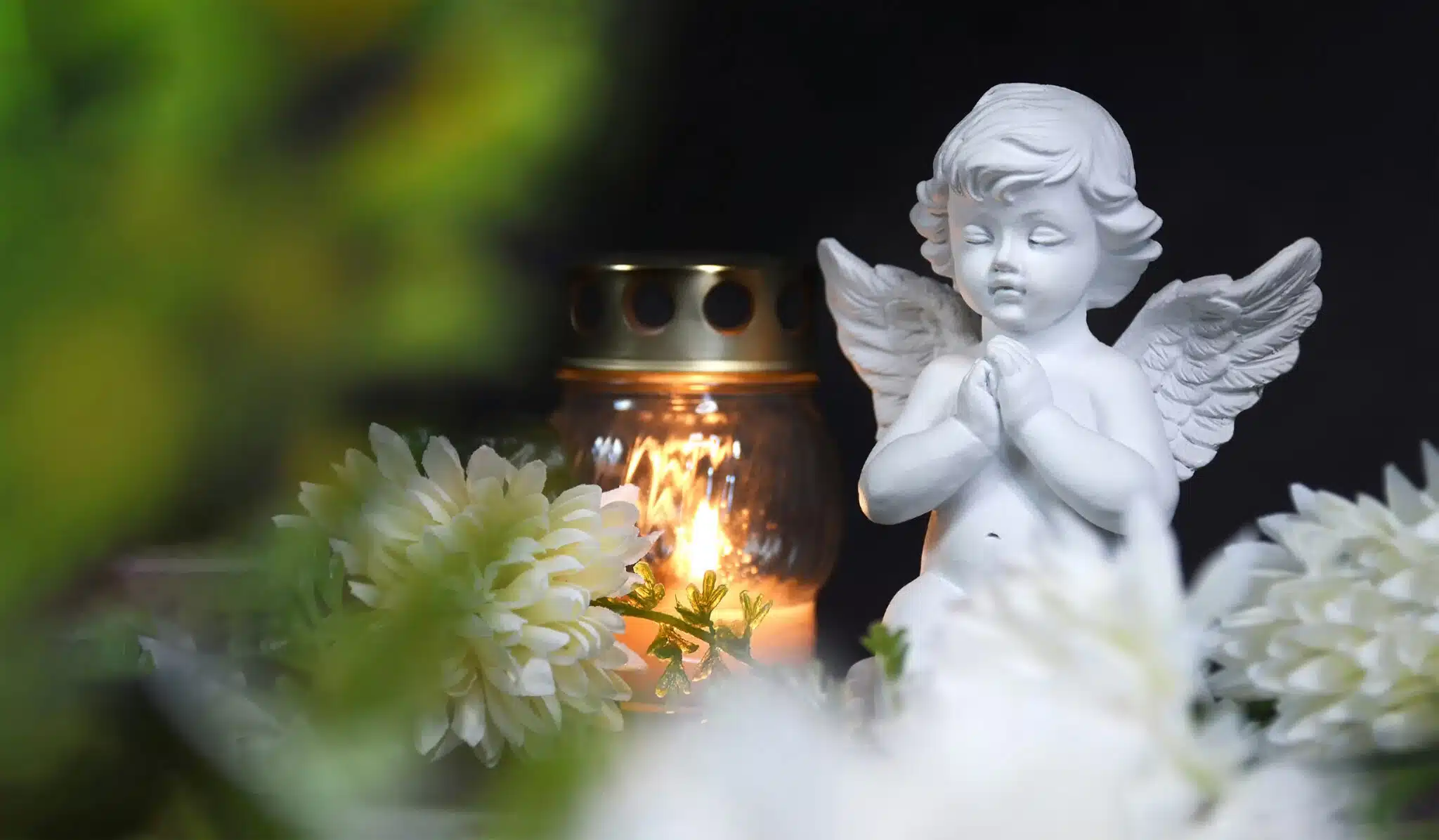Why Suicide Isn’t the Answer

“Everyone is responsible for his life before God who has given it to him. It is God who remains the sovereign Master of life. We are obliged to accept life gratefully and preserve it for his honor and the salvation of our souls. We are stewards, not owners, of the life God has entrusted to us. It is not ours to dispose of.”
― Catechism of the Catholic Church, no. 2280
Many developed nations already have, or are considering, legalizing assisted suicide and euthanasia. In some nations, such as Belgium, the Netherlands and Canada, the cases of assisted suicide or euthanasia have become so numerous, that suicide has effectively become normalized as a method of death. Many recent stories, for instance, suggest that many doctors are casually offering suicide as a “treatment” to patients.
With this rapid normalization of suicide, it is worth remembering that until quite recently, the Catholic Church prohibited persons who committed suicide funeral rites and even burial in a Church cemetery. There was, however, some consideration given to the person’s mental state at the time.
That started changing in the 1980s. Since then, the Church has altered Her pastoral approach to suicide. Canon law no longer specifically mentions suicide as an impediment to funeral rites or to burial in a Church cemetery. Except for those cases mentioned in Canon 1184 §1, priests can offer funeral rites for those who committed suicide, and the prohibitions on burial in Catholic cemeteries have been lifted.
There are many reasons for the shift in the pastoral approach. One is our increasingly detailed understanding of mental illness and its connection to biological factors that may be beyond the control of the individual. As well, there is the growing recognition that extreme suffering, both mental and physical, can severely cloud judgment.
In other words, there is a growing body of evidence that in many cases people who commit suicide may not be in full control of their rational faculties. As such, their moral culpability may be considerably diminished.
As the Catechism states: “We should not despair of the eternal salvation of persons who have taken their own lives. By ways known to him alone, God can provide the opportunity for salutary repentance. The Church prays for people who have taken their own lives” (no. 2283).
In addition to what we know about mental illness, there are also cases of people who survived suicide attempts and who have testified that in the instants before they thought they were going to die, they were filled with remorse for their decision and wished to take it back. Thus, we know that repentance is entirely possible in such cases.
In addition to better reflecting on some of realities of what we now know about suicide, the Church’s current pastoral approach has the great advantage of spiritually accompanying the friends and family of the deceased. The suicide of a loved one is one of the most difficult things that any person can go through. I have experienced this reality in my own immediate family. And as a priest who has offered funeral rites for persons who have committed suicide, I know first-hand the deep consolation and hope that the Church’s rites can offer to a family and faith community.
Suicide is a Grave Evil
However, the Church continues to prohibit funerals in cases of assisted suicide and euthanasia.
Some people might think that this is incongruous with the Church’s more merciful approach towards suicide in general. However, this is a grave misunderstanding. The fact is that the Church has never altered Her teaching on suicide one whit.
In cases of assisted suicide or euthanasia, the person has proactively sought suicide, pursuing a protracted, conscious process that involves extensive consultations and numerous chances to re-think the decision. In such cases, it is far, far more difficult to make the case that a person chose suicide out of ignorance or due to a loss of the control of his or her freedom.
Indeed, there was always the risk that a more merciful approach to suicide might blur the lines on the Church’s teachings on the issue. This is especially the case when certain pastors exaggerate the Church’s current approach and misrepresent what She teaches in this regard.
This is an unacceptable thing to do. While identifying suicide as a mortal sin—an action a person knows is of grave matter but willingly commits anyway—the Catechism recognizes the decreased culpability of the person in certain circumstances and the hope for God’s mercy. At the same time, the Church continues to teach that suicide is a grave moral evil. If carried out with full knowledge and freedom, it is objectively a mortal sin which imperils the eternal fate of the soul.
We do not know God’s mind when it comes to the eternal fate of any soul. In extraordinary cases, after an extensive process of investigation, the Church does declare certain individuals to be saints. However, this is the extreme exception. The only appropriate response in the case of the death of any person, especially in the fraught circumstance of suicide, is one of hope and humble resignation to God’s will.
While priests or others may be motivated by the positive desire to offer consolation to family members when they confidently declare that a person who has committed suicide is not morally culpable for his or her manner of death, there is a real risk that this exaggerated compassion leads to confusion about the gravity of the act of suicide.

HLI affiliate Amanda Achtman organized the “Mass of a Lifetime” at a senior home to residents who had only been able to attend Mass once a month. This event, which was followed by a reception with cake, brought great hope and joy to the residents.
In a famous passage in his masterpiece, Orthodoxy, G.K. Chesterton addressed the topic of suicide. “Not only is suicide a sin, it is the sin,” wrote Chesterton.
It is the ultimate and absolute evil, the refusal to take an interest in existence; the refusal to take the oath of loyalty to life. The man who kills a man, kills a man. The man who kills himself, kills all men; as far as he is concerned he wipes out the world. His act is worse (symbolically considered) than any rape or dynamite outrage. For it destroys all buildings: it insults all women. … There is a meaning in burying the suicide apart. The man’s crime is different from other crimes—for it makes even crimes impossible.
These words might sound harsh to contemporary ears. However, it is almost precisely the same point made in another passage in the Catechism.
“Suicide contradicts the natural inclination of the human being to preserve and perpetuate his life,” states paragraph 2281 of the Catechism. “It is gravely contrary to the just love of self. It likewise offends love of neighbor because it unjustly breaks the ties of solidarity with family, nation, and other human societies to which we continue to have obligations. Suicide is contrary to love for the living God.”
The point is that life is a gratuitous gift from God. The only appropriate response to a gift is to value and treasure it. In committing suicide, however, a person symbolically throws the gift back in God’s face. For Chesterton, this act was the ultimate betrayal of the loyalty that every human being owes to existence. In committing suicide, a person not only throws his own life away, but he also symbolically seeks to eradicate every other good thing that God has given him: his family, his friends, his society.
Considered absolutely, suicide is the ultimate act of egotism in which a person turns back entirely into himself.
St. Therese of Lisieux and Suicide
The beauty of the Church’s teachings, is how She manages to balance two things in harmony, i.e. love and truth.
The fact is that anyone who looks deeply into the issue of suicide (assisted suicide and euthanasia) will encounter stories that will break his or her heart and provoke an instinctive response of deep compassion. In this fallen world of ours, some people experience sufferings of such an intensity that it is not difficult to understand how they might be tempted to take their own lives simply to bring an end to these sufferings.
One thinks here of St. Therese of Lisieux, who ruminated on the topic of suicide in the final days of her life while suffering intense physical suffering due to advanced tuberculosis. “What a grace it is to have faith!” she told her sister. “If I had not any faith, I would have committed suicide without an instant’s hesitation.”
These are astonishing words coming from one of the greatest saints in Church history—a Doctor of the Church.
However, St. Therese repeated similar sentiments a few days later. “Watch carefully,” she told her sister, the mother superior of her convent, “when you will have persons a prey to violent pains; don’t leave near them any medicines that are poisonous. I assure you, it needs only a second when one suffers intensely to lose one’s reason. Then one could easily poison oneself.”
The loved ones of people who have committed suicide should find immense consolation in these words. If St. Therese, a woman of vast sanctity who devoted her entire life to following God’s will to the point of intensely desiring martyrdom, could find that physical suffering could destroy the control of her reason, then the same is no doubt also true for many people who have taken their lives in a moment of despair or of sudden, overwhelming suffering.
There is indeed hope in such cases.
The Compassion of Faith, and Moral Clarity
However, we should note St. Therese’s exhortation to her sister: to remove the temptation from the suffering person. Tragically, many contemporary societies are doing precisely the opposite. We are proactively offering death to our suffering people.
On this topic, one other statement of St. Therese’s is worth quoting. As her sister testified after her death, in the final days of her life, St. Therese remarked, “If I didn’t have faith, I could never bear such suffering. I am surprised that there aren’t more suicides among atheists.”
These words offer profound insight into the reason for the rapid rise of legalized assisted suicide and euthanasia in our modern, atheistic societies.
Christians have always understood that, even in the midst of great suffering, life is worth living. Indeed, we follow the crucified Christ, Whose death illustrates more powerfully than any philosophy could that suffering contains within it redemptive power and deep meaning. There are few things more beautiful than a person who embraces suffering with a sense of resignation and of a deep faith in the value even of a life shot through with suffering. Such souls shine.
However, remove the hope and eternal perspective that faith provides, and suddenly suffering becomes a monstrously powerful force. The one who is suffering and who lacks faith can see only the suffering. For such a one, the suffering is whole story. The meaning is obscured and lost. The result is that life itself becomes purely absurd.
No wonder, then, that so many people now are turning towards suicide as the “solution.” We have lost hope. We have lost all sense of the intrinsic dignity of life. We have lost sight of the idea that life is a gratuitous gift offered by an all-loving God, and that even in the midst of suffering (perhaps even especially) it is entirely worth living.
The Church has always taught that the effort to eradicate physical suffering is a great moral good. It is a very great good that modern pain management and palliative care has become so sophisticated. Deaths from many diseases have become far more dignified due to contemporary health care.
However, the deep insight that St. Therese’s words provide, is that physical pain management is insufficient. A key aspect of adequate care for the suffering and dying is spiritual care.
Here the Church has a crucial role to play. If She were to back down on her long-standing, clear teaching on the moral gravity of the act of suicide, she would be doing a grave disservice to those who are tempted towards suicide. Often, the temptation towards suicide is momentary and fleeting. Remove faith and moral clarity from the picture, and many a person might simply give in to this momentary temptation, drawing their life to a premature close and leaving their loved ones devastated.
Many a person has confessed that the two things that held their hand back from taking their lives were the fear of offending God by committing suicide and the fear of hurting their loved ones. Thus, extreme moral clarity, even if “harsh” on the surface, can have the beneficial impact of helping the person during temptation to see things with clarity and to hold on until the moment of temptation is passed.
In other words, the Church can and must continue to offer the salutary medicine of truth. Simultaneously, however, she must offer the pastoral care of compassion, visit the sick and dying, and offer them the gift of the sacraments and other forms of spiritual consolation.
What She can never do is adjust Her teachings to be more amenable to the times. Assisted suicide and euthanasia are grave evils, full stop. We can never participate in these evils. We can never support them.




I’ve noticed doctors become much less compassionate toward relieving suffering via pain management due to the illegal drug problem all over the country. So, people who are only sick and NOT recreational drug users are unable to live a normal life assisted by the appropriate pain medicine.
My best friend is suffering now. All she is offered is medication that makes her sick and doesn’t work.
My daughter is also suffering bc she has huge (7cm or larger) kidney stones. It is impossible to naturally pass. The Dr will not give her the surgery to break them up. She’s had the surgery Three Times already. The stones return immediately and block the urethra. She has had a serious infection for 10 years. My daughter brought up assisted suicide as an option to me just the other day..
My mom has Dementia for years now.
I do believe God doesn’t waste anything, including suffering.
I believe that if you look into alternative medicine, you will find an answer for your daughter. There are natural methods to getting rid of kidney stones. Sometimes we have to search out our own healing. Sometimes there will be supernatural healings, and sometimes we have to proactively search for them. As scripture states, it is to the Glory of God to keep things hidden and to the glory of kings to search them out.
Allopathic medicine is not the only method.